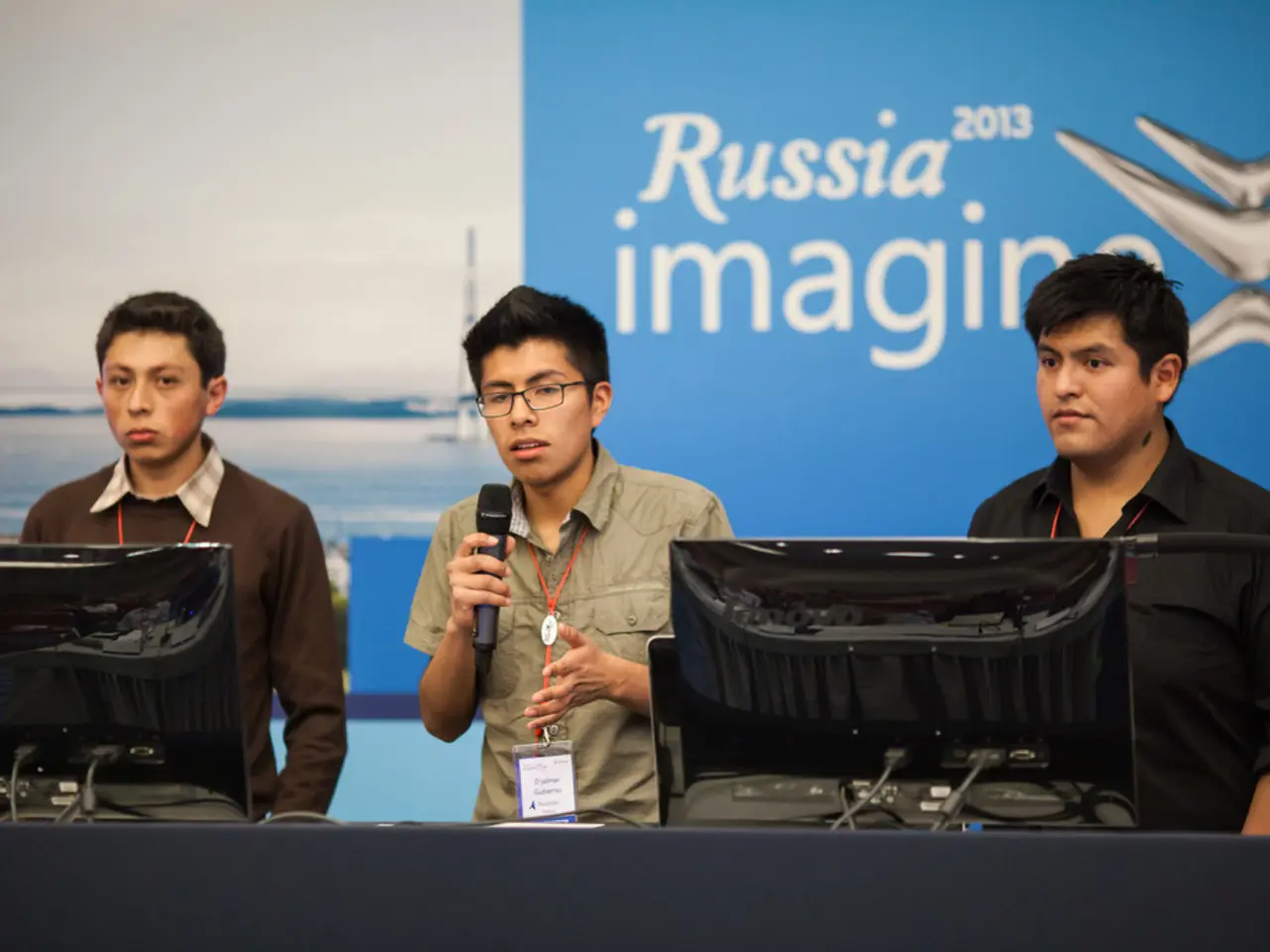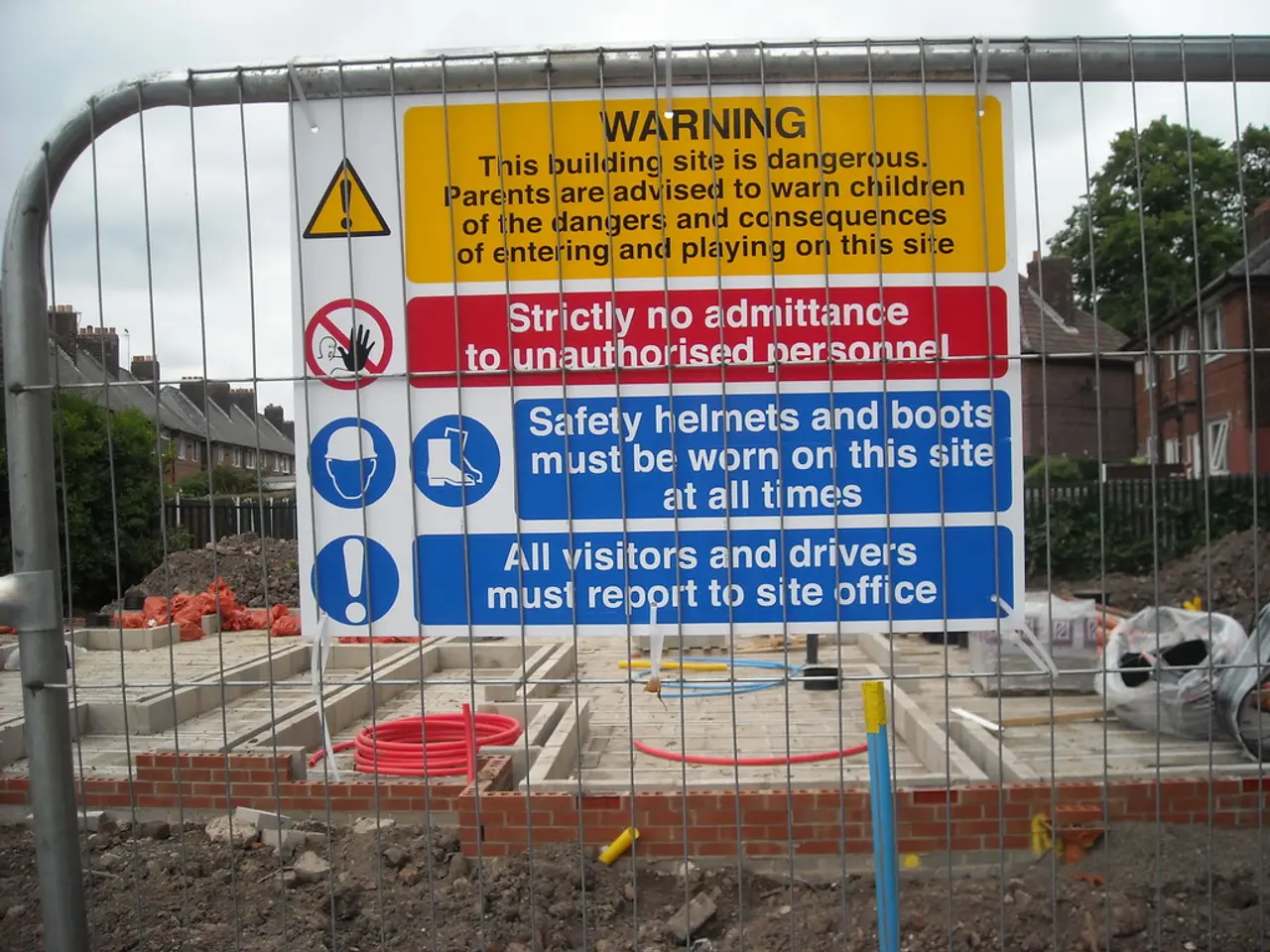Federal authorities neglect tracking covert sabotage and espionage activities by Putin's clandestine naval force.
The Russian shadow fleet, a group of stateless or fraudulently flagged tankers, continues to be an active and contentious element in the Baltic Sea, causing mutual warnings and heightened tensions. Despite NATO promises and measures such as increased patrols and inspection threats, the number of shadow fleet tanker transits through the Baltic and North Sea remains high[1][3][5].
Since NATO states pledged action over 45 days ago, 20 shadow fleet tanker transits have occurred. The fleet often uses fake registrations or operates flagless to evade sanctions and detection[1][3]. The Russian Navy has begun escorting certain sanctioned shadow fleet tankers in convoys through sensitive maritime routes, indicating a protective stance aimed at ensuring their safe passage[3].
Russian intelligence (SVR) claims the UK may be preparing false flag operations involving sabotage or "mass raids" on these tankers to justify further Western actions against Russia. Simultaneously, there are Western suspicions about the shadow fleet's activities, including accusations of dragging anchors over critical undersea infrastructure, such as NATO communication cables, potentially amounting to sabotage. NATO countries are responding by deploying underwater monitoring technologies to detect such interference[1][4].
The shadow fleet, composed of many aging tankers, poses significant environmental hazards from potential oil spills, complicating enforcement due to its use of opaque ownership, registration under dubious flags, and reliance on legal loopholes[2]. Baltic states like Estonia and Sweden have taken concrete steps such as seizing unregistered vessels, inspecting suspect tankers, and threatening to seize ships in their economic zones. These actions aim to choke off illicit Russian oil exports through the Baltic but risk escalating military tensions with Moscow[3][5].
The German government does not have an overview of incidents involving ships of the so-called shadow fleet in German territorial waters. The Federal Ministry of the Interior does not maintain statistical records based on this criterion due to a lack of a legally binding definition of the shadow fleet. However, the German customs seized the oil tanker "Eventin" and its cargo off Rügen to protect the Baltic coast from an environmental disaster[6]. Another oil tanker, the "Jazz," reported engine trouble off Rügen and began to drift in January, with suspicious timing near a data cable connecting Rostock to Finland[7].
The current oil price cap allows Russian oil to be sold on the world market only at limited prices. Western states impose sanctions on these ships to at least make it more difficult to circumvent the oil price cap[8]. Russia responded to the oil price cap by building a shadow fleet, which now consists of several hundred ships[9]. The German Federal Government considers the shadow fleet central to Russia for sabotage, espionage, and circumventing international sanctions[10].
In summary, the Russian shadow fleet in the Baltic Sea is an active, strategically significant element of Russia’s irregular maritime operations. It continues to evade sanctions and maritime controls, while also generating serious concerns about sabotage, espionage, environmental risk, and potential escalation in the region's security dynamics[1][2][3][4][5]. An accident involving the shadow fleet tankers could have catastrophic consequences, according to MP Vogtschmidt[11].
The European Parliament has been asked to vote on a draft resolution concerning the European Union's nuclear programme, given the ongoing political tension in the Baltic region, as the Russian shadow fleet's suspicious activities in the same body of water have raised crime-and-justice concerns. Continued evasion of sanctions and increased military tensions make it an urgent matter for the EU to scrutinize its nuclear programme in the context of regional politics and security.
With the Russian shadow fleet's actions causing mutual warnings and heightened tensions between NATO countries and Russia, any potential sabotage or "mass raids" could precipitate a wider conflict, necessitating close monitoring by law enforcement agencies in the general-news domain. The EU's nuclear programme may also become a target of such activities, making it equally relevant for the parliament to deliberate on the matter.








